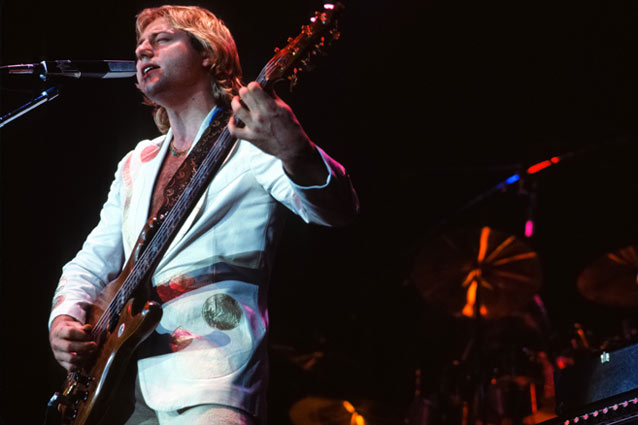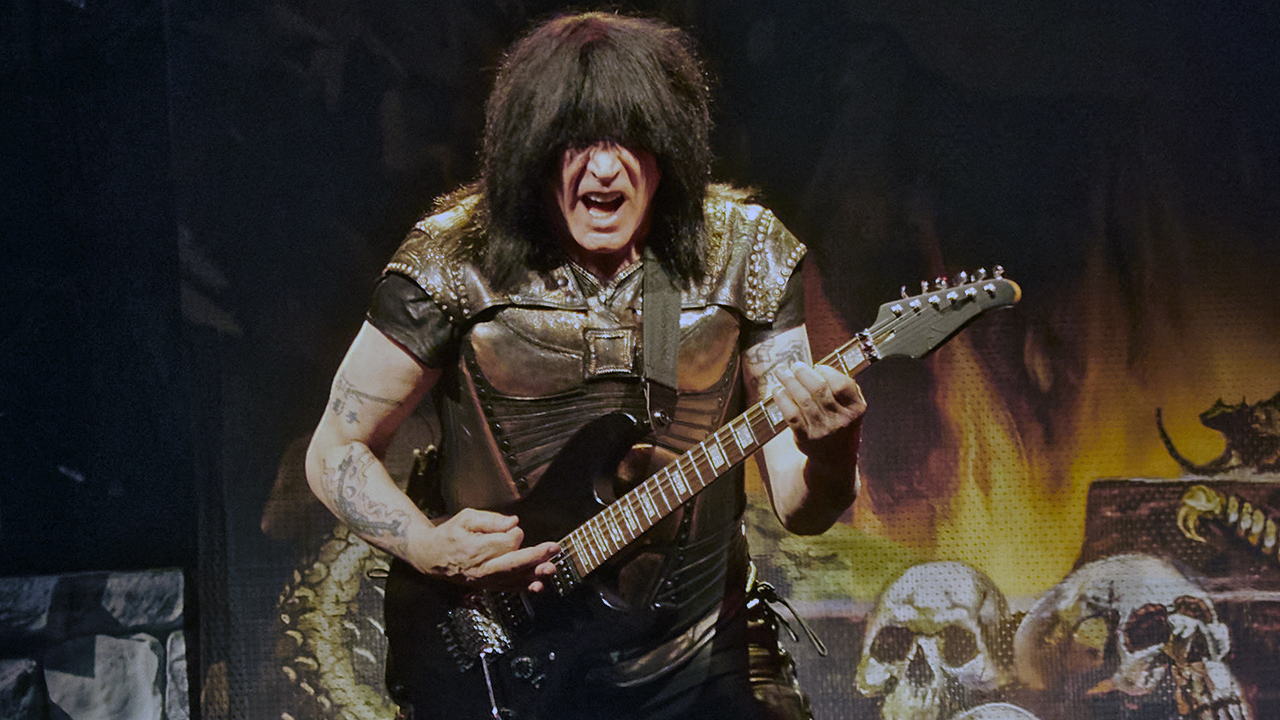Greg Lake Dead: Emerson, Lake and Palmer and King Crimson Musician Was 69
All the latest guitar news, interviews, lessons, reviews, deals and more, direct to your inbox!
You are now subscribed
Your newsletter sign-up was successful

Greg Lake, a multi-instrumentalist who was a member of King Crimson and Emerson, Lake and Palmer, died yesterday, December 7, at age 69.
Lake, who was a singer, songwriter, musician and producer, had been battling cancer for quite some time.
His death was confirmed via his official Twitter account by Stewart Young, Emerson, Lake and Palmer’s longtime manager.
“Yesterday, December 7th, I lost my best friend to a long and stubborn battle with cancer," Young wrote. “Greg Lake will stay in my heart forever, as he has always been. His family would be grateful for privacy during this time of their grief.”
The news comes nine months after Lake's bandmate, keyboardist Keith Emerson, died of a self-inflicted gunshot wound.
Yes keyboardist Geoff Downes was among first rockers to pay his respects, saying, “Very sad about Greg Lake. I had the privilege of working with him on several projects. His great talent will be sorely missed by all. Another genius has passed away. 2016 has truly been an annus horribilis in musical history.”
Lake was given his first guitar at age 12 and took lessons from local tutor Don Strike. He formed a friendship with fellow student Robert Fripp, with whom he formed King Crimson in 1969. Their debut album, 1969's In the Court of the Crimson King, set a standard for prog-rock and is considered one of the first and most influential albums of the genre.
All the latest guitar news, interviews, lessons, reviews, deals and more, direct to your inbox!
The album has attained status as a classic, with Allmusic praising it "[a]s if somehow prophetic, King Crimson projected a darker and edgier brand of post-psychedelic rock."
"At that time, nearly all the British bands were using the blues or soul music—American music—as their influence," Lake told Gibson.com in 2012. "Since that well had been visited so many times, we decided we would try to use European music as our base influence, in order to be different. Robert [Fripp] and I—and Ian McDonald, for that matter—had all been schooled in European music.
"We understood it. We played Django Reinhardt, and we did Paganini violin exercises and so forth. Even though I loved American music, and had played it throughout my youth, it was very easy for me to adapt to using European music as the basis for new creations. I had studied that form of music."
Within a year, however, founding member Mike Giles quit. Lake hung around long enough to sing on their second album, In the Wake of Poseidon.
He was then approached by Emerson, who needed a singer for his new band. Filled out by Atomic Rooster drummer Carl Palmer, Emerson, Lake and Palmer (ELP) made their live debut in Plymouth, England, in 1970, just before their career-making performance at the Isle of Wight Festival.
The band combined heavy rock riffs with a classical influence and scored hits with Pictures at an Exhibition, Trilogy and Brain Salad Surgery. Tarkus, which was released in 1971, featured an opening track lasting more than 20 minutes (in seven parts, two of which were composed by Lake), inspired by the fictional Tarkus, a half-tank, half-armadillo creature that would appear on stage at gigs.
The band's ambitious light shows and on-stage theatrics were the epitome of Seventies rock excess, and a host of punk acts cited ELP as one of the bands they were reacting against. But they sold more than 48 million records, and Lake continued to be an influential and popular touring musician, even after the band wound down in the late Seventies.
"The greatest music is made for love, not for money," Lake is quoted as saying on his official website. "The early ELP albums were pioneering because there is no standing still; time is always moving forward."

Damian is Editor-in-Chief of Guitar World magazine. In past lives, he was GW’s managing editor and online managing editor. He's written liner notes for major-label releases, including Stevie Ray Vaughan's 'The Complete Epic Recordings Collection' (Sony Legacy) and has interviewed everyone from Yngwie Malmsteen to Kevin Bacon (with a few memorable Eric Clapton chats thrown into the mix). Damian, a former member of Brooklyn's The Gas House Gorillas, was the sole guitarist in Mister Neutron, a trio that toured the U.S. and released three albums. He now plays in two NYC-area bands.
